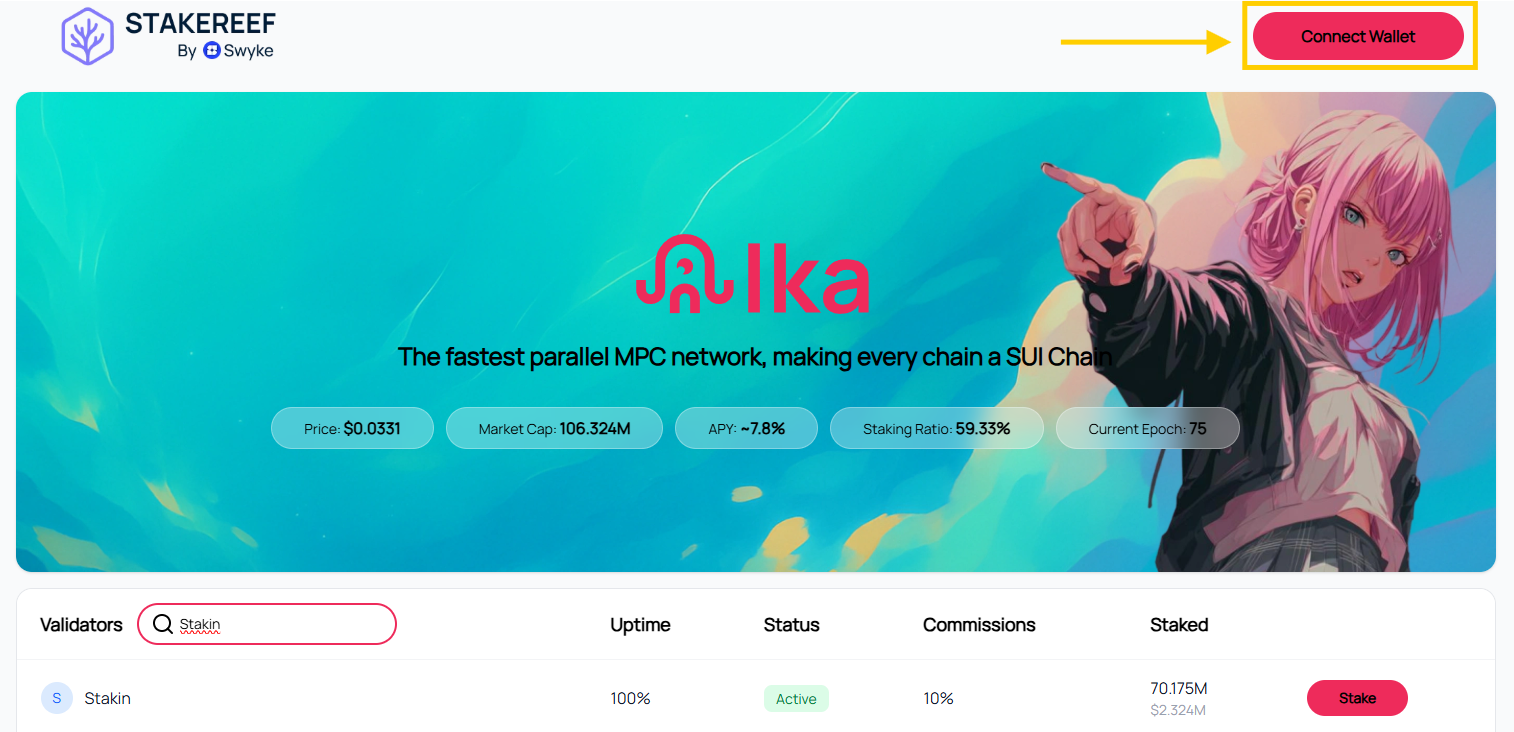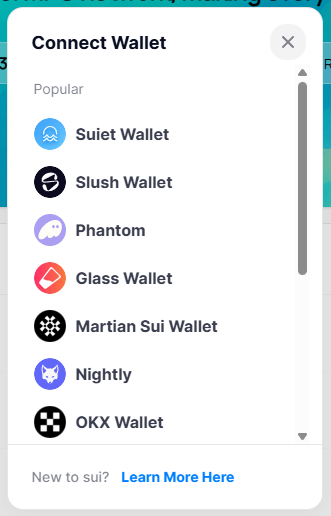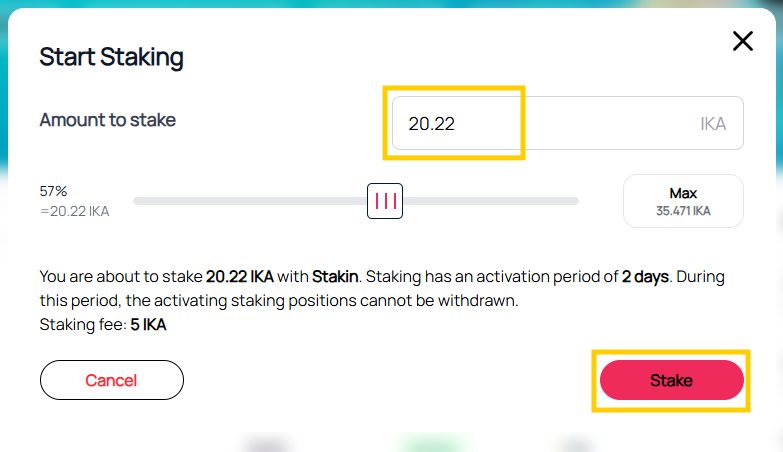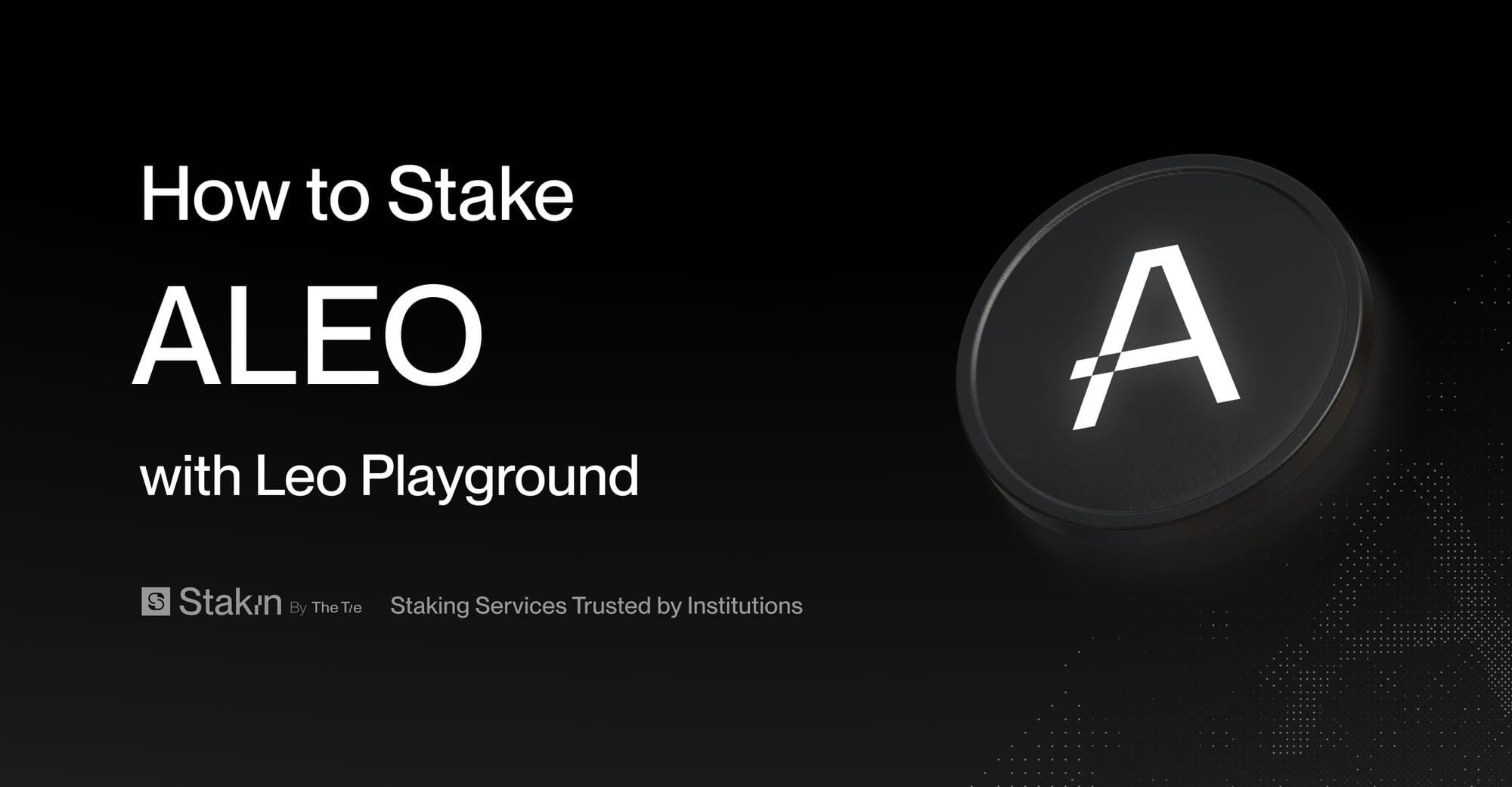This is a quick and easy guide on how to stake IKA with Slush, Suiet, Phantom, or any other supported wallet. In our experience, the Slush Wallet, which is also backed by the SUI Foundation, works best with IKA or SUI.
Ika is changing how decentralized signing works. It’s the first sub-second MPC network, meaning it’s super fast, secure, and can scale to thousands of signatures per second. With Ika’s dWallets, builders can manage native assets on different blockchains right from their smart contracts.
Let's get started with staking IKA.
Step 1 - Connect your wallet to the IKA staking portal
Go to the IKA Stakereef staking portal - https://stakereef.com/
Then click on “Connect wallet” in the top right corner

From the list of suggested wallets in the newly opened pop-up window, select your preferred wallet. You will then also need to Approve the connection request from Staking Portal to your Wallet.

You will then also need to Approve the connection request from Staking Portal to your Wallet. Now you are ready to stake.
Step 2 - Choose your Validator
Now you need to choose a validator. On the same page, click on the “Validator” search box and type “Stakin”, then click Stake.

Step 3 - Delegate your IKA
In case you don't have any IKA tokens yet, then you can, for example, swap your SUI tokens inside Slush Wallet for IKA tokens.

Once you have chosen your preferred validator, enter the amount you want to delegate and click Delegate Stake.

Congratulations! Once your delegation has finalized the activation period, you will start earning staking rewards.
After some time, you will see your stake on the same page, where you can Claim Rewards and also Unstake your delegation.

Final Thoughts
Staking on IKA is a simple process that allows users to support the network. By staking your tokens, you contribute to the network's operations and security and earn rewards in return.
If you're interested in staking IKA or want to learn more about the process, feel free to reach out to our team.
DISCLAIMER: This is not financial advice. Staking, delegation, and cryptocurrencies involve a high degree of risk, and there is always the possibility of loss, including the failure of all staked digital assets. Additionally, delegators are at risk of slashing in case of security or liveness faults on some protocols. We advise you to do your due diligence before choosing a validator.



